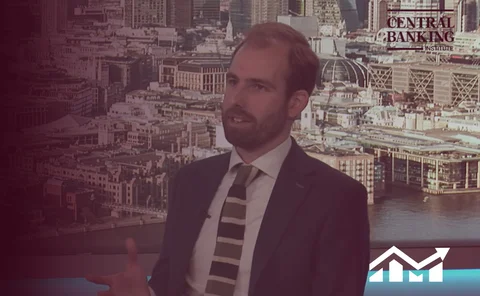International
Will the dollar remain the world’s reserve currency?
Bank of Russia sanctions are unlikely to undermine the US dollar’s central role in reserve portfolios. But a relative decline in US economic weight and technological innovation are benefiting other currencies
Big tech firms may suffer from ‘too much information’ – BIS paper
Firms that pry too much into customers’ affairs may find themselves with no business, authors say
Bank of Mexico’s battle to restore price stability
Despite presidential attacks, former officials say a solid institutional framework preserves central bank autonomy – likely a key asset in the battle against inflation
Swift aims to cut cross-border frictions with predictive tool
Use of anonymised data can help spot errors in cross-border payments, Swift says
Supply-side pressures likely to persist – Carstens
Policy-makers “need to be realistic” about the feasibility of demand management, BIS chief says
How to run a world-class economics department
Benchmarking data shows central banks have myriad ways of organising their economists. So how do some of the world’s top research organisations do it?
Gontareva on Ukraine’s funding, NBU policy and reconstruction
Former NBU governor Valeria Gontareva speaks about donor funding shortfalls, NBU policy and financial stability challenges, Nabuillina and the seizing of Russian assets, and post-conflict rebuilding and modernisation
Geostrategic risks now a major factor – CNB reserves head
Ondrej Strádal supports use of CBR reserves for reparations, is reassessing renminbi allocations and has US recession as a ‘base case’ scenario
Taking a cue from the top: governor turnover and independence
Central bank governors tend to have long tenures, but what that means can vary. High turnover remains a worrisome signal
Long-term data can shed light on current inflation – NBER paper
Authors suggest first half of 20th century has clearer parallel to current inflation than 1970s
Central banks should ‘overestimate’ inflation persistence, says economist
Academic argues central banks should act as if exogenous shocks are likely to be persistent
The PBoC, real estate debt and financial stability in China
Central bank policy-makers are restricted in terms of capacity and space by their efforts to manage the nation’s property bubble amid declining growth
Firms use supply chains to predict inflation – IMF paper
Authors find expectation formation diverges from rational expectations hypothesis
Ukraine’s wartime economy faces possible crisis
Foreign donors must increase financing of Ukrainian government, NBU ex-governor and current government adviser argue
‘Very little support’ for a US Treasury clearing mandate – Isda
Dealers and clients prefer carrot to stick in efforts to improve Treasury market liquidity
Monetary policy ‘increasingly synchronised’, say IMF officials
Very few central banks have bucked the global trend since the start of the pandemic
Colombian study estimates policy impact on capital flows
Meta-analysis using web scraping finds central banks have more control over some flows than others
Communications Benchmarks 2022 – presentation
Central Banking’s economics subject matter specialist Daniel Hinge on communications governance, social media, media monitoring and more
Central banks weighing up CBDC offline alternatives
Institutions are testing ways of allowing digital payments without the internet
How central bank mistakes after 2019 led to inflation
Central banks must acknowledge their own mistakes and outline concrete steps to restore the public’s confidence in their ability to ensure price stability, write Graeme Wheeler and Bryce Wilkinson*
Activity-based regulation will not guarantee level playing field – BIS paper
Authors propose framework to clarify use of entity- and activity-based regulations
The case for restoring the role of monetary aggregates
Tim Congdon argues that a surge in money supply in response to Covid-19 sparked heightened inflation and central banks need to refocus their attention on monetary aggregates
IMF stresses inflation risks may rise further
In such a case, central banks will need to be more resolute in securing price stability
Inflation offers route to unconventional policy exit
Asset purchases and negative rates can be reversed, but Fed/ECB policy divergence raises major risks






















